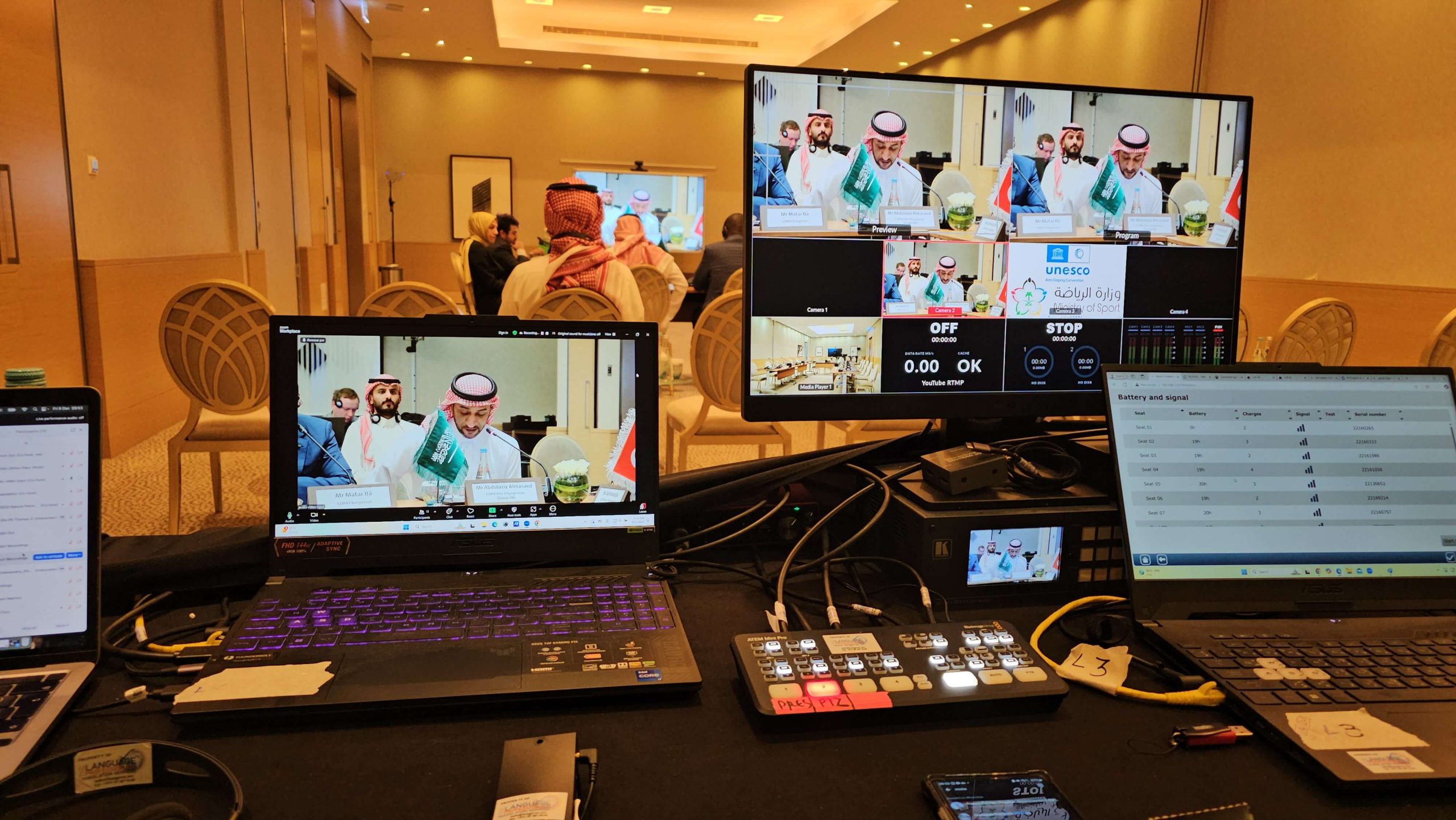Researched and written by Evangelos – ~4 min read

Whether facilitating communication in international business meetings, bridging language gaps in medical emergencies, or helping deliver justice in legal proceedings, interpreters play a crucial role in facilitating effective communication across different contexts. But the question often arises: Are bilinguals inherently good interpreters?
Bilingual individuals may possess fluency in two or more languages; however, being an excellent interpreter entails much more than mere language proficiency. Interpreting is a specialized skill requiring a unique blend of linguistic expertise, cultural awareness, technical knowledge, and professional conduct. Let’s delve deeper into the qualities that distinguish professional interpreters from bilingual speakers:
- Linguistic Expertise: Professional interpreters are not just fluent speakers of multiple languages; they have a deep understanding of linguistic nuances, idiomatic expressions, and specialized terminology across various fields. They possess excellent working memory, enabling them to retain vast amounts of information and convey it accurately in real time.
- Cultural Awareness: Interpreting goes beyond mere translation; it involves navigating cultural nuances and sensitivities. Professional interpreters are adept at deciphering cultural cues, understanding non-verbal communication, and adapting the message to suit the cultural context of the target audience. This cultural competence ensures that the original message is accurately conveyed without causing misunderstandings or offense.
- Interpreting Techniques: Different interpreting techniques are employed depending on the context and requirements of each specific event. Whether it’s simultaneous interpreting for conferences, consecutive interpreting for presentations, or business interpreting for one-on-one meetings, professional interpreters possess the versatility and skill to efficiently adapt to various settings and deliver seamless communication.
- Impartiality: Professional interpreters are required to maintain strict impartiality and confidentiality in their work. They must refrain from interjecting personal opinions or biases while ensuring that all parties involved in the communication process are treated equitably. This impartiality is essential for building trust and credibility with clients and ensuring the integrity of the interpreting process.
- Multitasking Ability: Interpreting often involves multitasking under pressure, requiring interpreters to process information rapidly, make split-second decisions, and maintain the natural flow of communication. Professional interpreters possess exceptional multitasking skills, allowing them to handle complex linguistic challenges with ease and efficiency.
- Preparation: Prior to any interpreting assignment, professional interpreters dedicate extensive time to preparation. They thoroughly familiarize themselves with the subject matter, research specialized terminology, and anticipate potential challenges to ensure they are well-equipped to handle any situation that may arise during the event.
Becoming an Interpreter
While bilingual individuals may possess some of these skills, professional interpreters undergo rigorous formal training and certification processes to hone their craft. Many professional interpreters hold specialized degrees or qualifications in interpreting, demonstrating their commitment to excellence and ongoing professional development.
Choosing an Interpreter
Interpreting is not without its challenges, and the consequences of inaccurate interpretation can be significant. Choosing the right interpreter is crucial, especially in high-stakes situations such as legal proceedings or medical emergencies. Trusted language service providers such as Langpros understand the importance of matching clients with highly skilled interpreters who possess the necessary expertise and professionalism to ensure successful communication outcomes.
Interpreters at Langpros
At Langpros, we pride ourselves in collaborating with the best-trained interpreters in the GCC and beyond. Our team offers a wide range of language services, from simultaneous interpreting with state-of-the-art equipment to consecutive and business interpreting, hybrid or fully remote interpreting and, more recently, AI interpreting solutions, suitable for last minute events or events with budget constraints. Whether you require interpreting services for a corporate event, legal deposition, or medical consultation, you can trust Langpros to deliver exceptional language solutions tailored to your needs.
Conclusion
Even though bilingualism is undoubtedly a valuable asset, in and of itself it does not guarantee proficiency in interpreting. Professional interpreters bring a unique set of skills, knowledge, and experience to the table, ensuring accurate, culturally sensitive communication across languages and cultures. When it comes to interpreting solutions, trust the experts at Langpros to bridge the language gap and facilitate seamless communication in any setting.





